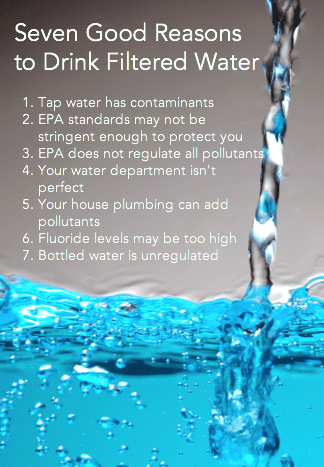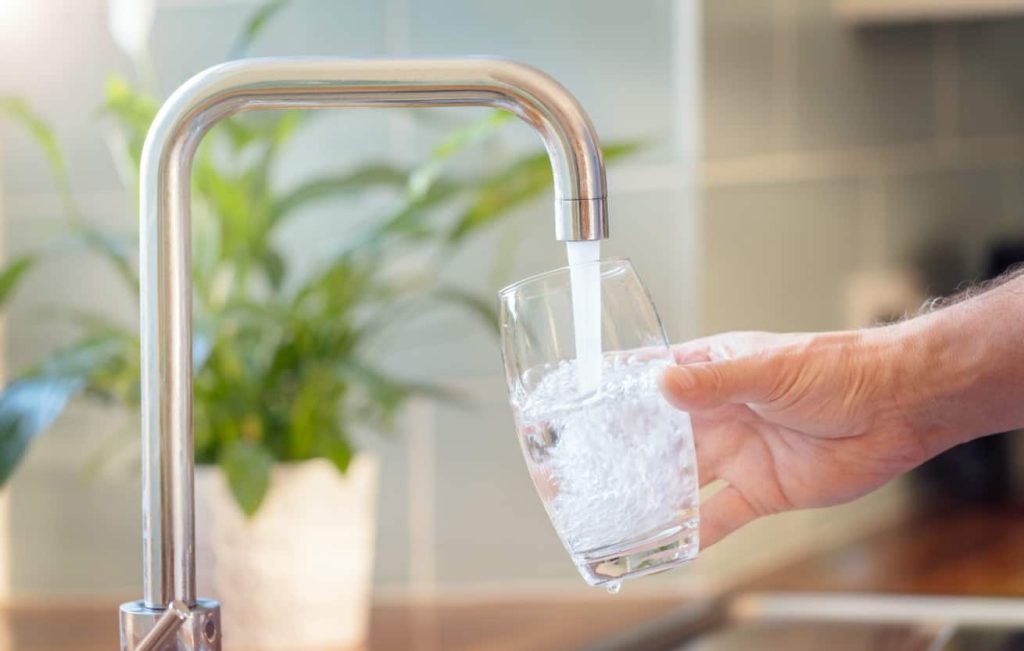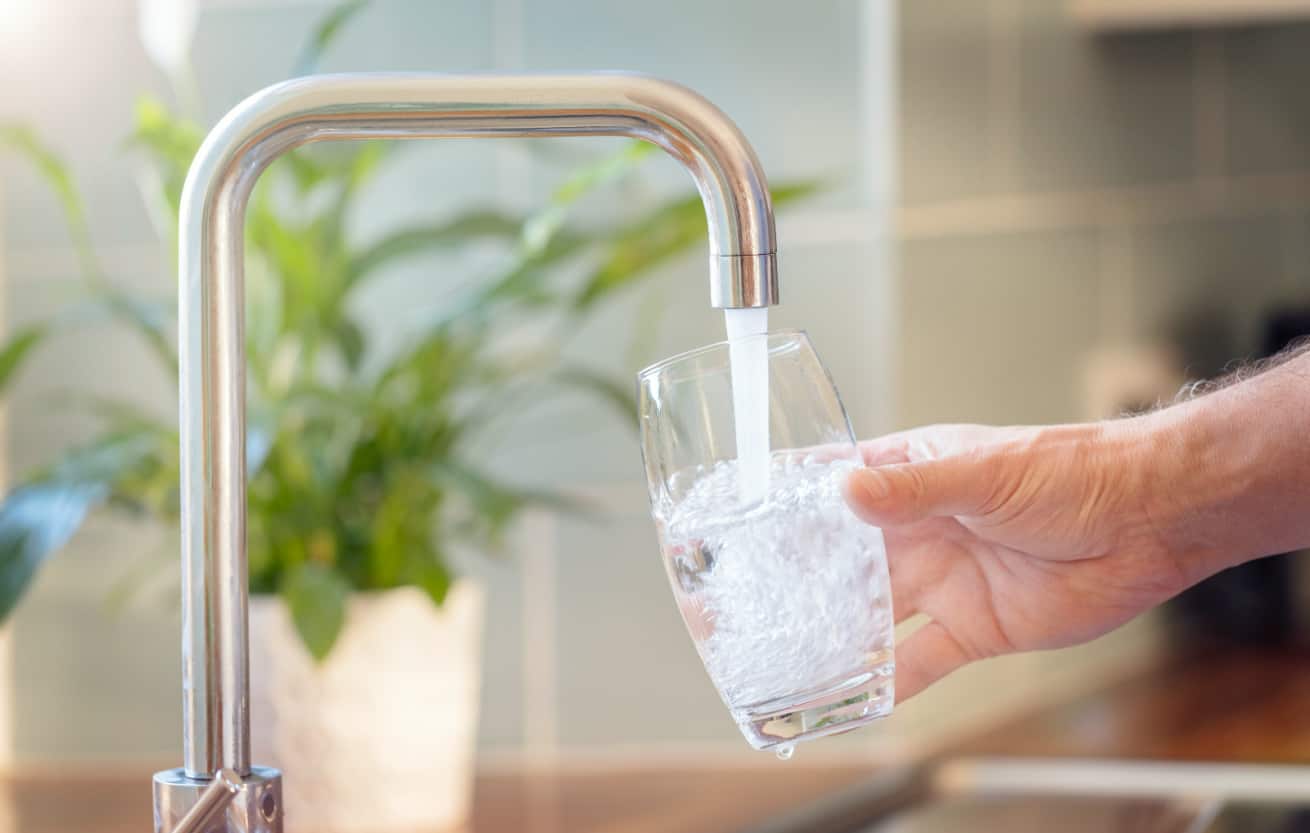When it comes to quenching your thirst, the question arises: should you always drink filtered water? With concerns about contaminants and impurities in tap water, many people opt for filtered water as a safer and healthier choice. However, is it necessary to filter your water every single time? In this article, we will explore the benefits and drawbacks of drinking filtered water and help you make an informed decision about your hydration habits. So, next time you reach for a glass, you’ll know whether filtering is the way to go.
Potential Contaminants in Tap Water
Tap water, while generally safe for consumption, can still contain potential contaminants that may pose a risk to your health. It is essential to be aware of these contaminants to make informed decisions about your water consumption.
Chemicals
Tap water can contain various chemicals, such as chlorine and fluoride, which are commonly added during the water treatment process. While these chemicals help disinfect the water and prevent the spread of waterborne diseases, excessive exposure over time can have adverse effects on your health. Additionally, tap water may also contain traces of industrial chemicals, pesticides, and pharmaceuticals, which can seep into water sources from agricultural runoff or improper disposal.
Heavy Metals
Certain heavy metals, such as lead, mercury, and arsenic, can sometimes find their way into tap water through old plumbing systems or contaminated water sources. Prolonged exposure to these metals can lead to serious health issues, particularly in vulnerable populations such as children and pregnant women.
Microorganisms
Microorganisms, including bacteria, viruses, and parasites, can occasionally contaminate tap water, especially in areas with inadequate water treatment systems. These microorganisms can cause gastrointestinal infections and other illnesses, particularly in individuals with weakened immune systems.
Pesticides
The use of pesticides in agriculture can result in the contamination of water sources, leading to traces of these chemicals in tap water. Chronic exposure to pesticides has been linked to various health problems, including cancer, reproductive issues, and neurological disorders.
Benefits of Drinking Filtered Water
Given the potential contaminants in tap water, many people opt for filtered water as a safer alternative. Drinking filtered water offers several benefits that can positively impact your health and overall well-being.
Removal of Harmful Substances
One of the main benefits of using a water filter is the effective removal of harmful substances. Different types of filters can target specific contaminants, such as chlorine, heavy metals, and microorganisms, ensuring that the water you consume is free from these potentially harmful elements.
Improved Taste and Odor
Another advantage of drinking filtered water is the improved taste and odor. Filters can effectively remove chlorine and other chemicals that contribute to an unpleasant taste or smell, providing you with a more refreshing and enjoyable drinking experience.
Reduced Risk of Illness
By removing contaminants and microorganisms, filtered water can help reduce the risk of waterborne illnesses. This is especially crucial for individuals with compromised immune systems or those living in areas with inadequate water treatment facilities. By investing in a reliable water filter, you can have peace of mind knowing that the water you drink is safe and unlikely to cause illness.


This image is property of cdn.shopify.com.
Types of Water Filters
When it comes to choosing a water filter, there are several options available, each with its own unique filtration method and advantages.
Activated Carbon Filters
Activated carbon filters use adsorption to trap contaminants by attracting and binding them to the surface of the carbon filter. They are effective at removing chlorine, sediment, and certain organic compounds that can affect taste and odor. However, they may have limited effectiveness in removing heavy metals or microorganisms.
Reverse Osmosis Systems
Reverse osmosis (RO) systems use a semipermeable membrane to separate contaminants from water. These systems are highly effective at removing a wide range of contaminants, including heavy metals, microorganisms, and chemicals. However, they can be more expensive and may also remove beneficial minerals from the water.
Ultraviolet Water Purifiers
Ultraviolet (UV) water purifiers use UV light to kill or deactivate microorganisms present in water. They are an excellent option for disinfecting water and eliminating harmful bacteria and viruses. However, UV purifiers do not remove other types of contaminants, such as chemicals or heavy metals.
Distillation Units
Distillation units heat water to create steam, which is then condensed back into liquid form, leaving behind contaminants. This process effectively removes many impurities, including heavy metals and microorganisms. However, distillation units can be energy-intensive and may remove beneficial minerals from the water.
Considerations for Choosing a Water Filter
When selecting a water filter, it is important to consider various factors to ensure that it meets your specific needs and preferences.
Water Quality
The first consideration is the quality of your water. Understanding the specific contaminants present in your tap water will help determine the type of filter that can effectively address those issues. Water quality testing kits or reports from your local water authority can provide valuable information in this regard.
Budget
Another important factor to consider is your budget. Different types of filters come with varying costs, both in terms of the initial purchase and ongoing maintenance. It is essential to find a filter that fits within your budget as well as provides the level of filtration required to meet your needs.
Installation and Maintenance
The ease of installation and ongoing maintenance should also be taken into account. Some filters, such as activated carbon or UV purifiers, can be easily installed on a faucet or under the sink, while others, like RO systems, may require professional installation. Additionally, consider the frequency and cost of replacing filter cartridges or other required maintenance tasks.


This image is property of i0.wp.com.
Drinking Bottled Water vs. Filtered Water
In the quest for cleaner and safer drinking water, many individuals turn to either bottled water or filtered water. Both options have their advantages and disadvantages, and it is essential to weigh these factors when making a decision.
Environmental Impact of Bottled Water
One significant drawback of bottled water is its environmental impact. The production, transportation, and disposal of plastic water bottles contribute to pollution and waste. By opting for filtered water, you can significantly reduce your carbon footprint and help preserve the environment.
Cost Comparison
Another aspect to consider is the cost comparison between bottled water and filtered water. While the initial investment in a water filter may require some upfront expense, it is generally more cost-effective in the long run compared to regularly purchasing bottled water. Over time, the savings can be substantial, making filtered water a more economical choice.
Quality and Taste
When it comes to quality and taste, filtered water often surpasses bottled water. Filters can remove contaminants and chemicals that affect the taste, odor, and overall quality of tap water. By using a high-quality water filter, you can enjoy the benefits of clean and great-tasting water without the need for bottled alternatives.
When Filtered Water may not be Necessary
While filtered water is generally recommended for optimal health and safety, there are situations where it may not be necessary.
Municipal Water Sources with Reliable Treatment
If you have access to a reliable municipal water source that undergoes rigorous treatment and testing, the need for additional filtration may be minimal. Municipal water treatment facilities are designed to remove and monitor potential contaminants, ensuring that the water meets safety standards. However, it is still important to be aware of any potential issues specific to your local water supply.
Bottled Water with Adequate Certification
Some bottled water brands undergo stringent testing and have certifications that guarantee the absence of contaminants. If you choose to purchase bottled water, look for reputable brands that provide transparent information about their water sources and treatment processes. Bottled water with adequate certification can offer a safe and convenient alternative to filtered water.
Personal Preference
Lastly, personal preference plays a role in the decision to drink filtered water. Some individuals may find the taste, odor, or overall quality of tap water to be acceptable without additional filtration. Ultimately, the choice to drink filtered water is subjective and depends on individual preferences and comfort levels.


This image is property of www.everydaycheapskate.com.
Potential Drawbacks of Drinking Filtered Water
While filtered water offers numerous benefits, it is important to acknowledge potential drawbacks as well.
Removal of Beneficial Minerals
Certain filtration methods, such as reverse osmosis and distillation, have the potential to remove beneficial minerals from the water. These minerals, such as calcium, magnesium, and potassium, play a vital role in maintaining good health. If your filtered water lacks these essential minerals, you may need to seek alternative sources for obtaining them.
Initial Costs and Maintenance
Investing in a water filtration system may require an initial upfront cost, depending on the type and quality of the filter. Additionally, ongoing maintenance, such as replacing filter cartridges, can add to the overall expense. It is essential to factor in these costs when considering filtered water as an option.
False Sense of Security
While water filters are effective at removing many contaminants, they should not be seen as a foolproof solution. It is important to remember that filters have limitations and may not remove all potential risks. Regular upkeep and proper maintenance are crucial to ensure that the filter functions optimally. Additionally, filters should be periodically replaced according to the manufacturer’s recommendations to maintain their effectiveness.
Conclusion
In conclusion, the decision to drink filtered water depends on various factors, including the presence of contaminants in the tap water, personal health considerations, and individual preferences. Filtered water offers numerous benefits, such as the removal of harmful substances, improved taste and odor, and reduced risk of illness. However, it is important to consider the type of filter that best suits your needs, the quality and budgetary considerations, and the potential drawbacks associated with filtered water. Ultimately, the goal is to consume clean, safe water that promotes your overall health and well-being.
This image is property of qph.cf2.quoracdn.net.




